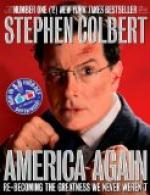Every one of the company had his special work to attend to; but every one’s work was concerned with cattle, and cattle only. The musterers were to work every area of country again and again, and the Dandy’s work began in the building of the much-needed yard to the north-west.
We breakfasted at the Springs all together, had dinner miles apart, and all met again at the Stirling for supper. Dan and ourselves dined also at the Stirling on damper and “push” and vile-smelling blue-black tea. The damper had been carried in company with some beef and tea, in Dan’s saddle-pouch; the tea was made with the thick, muddy, almost putrid water of the fast-drying water hole, and the “push” was provided by force of circumstances, the pack teams being miles away with the plates, knives, and forks.
Out-bush we take the good with the bad as we find it; so we sat among towering white-ant hills, drinking as little of the tea as possible and enjoying the damper and “push” with hungry relish.
Around the Stirling are acres of red-coloured, queer-shaped uncanny white ant hills, and camped among these we sat, each served with a slice of damper that carried a smaller slice of beef upon it, providing the “push” by cutting off small pieces of the beef with a pen-knife, and “pushing” them along the damper to the edge of the slice, to be bitten off from there in hearty mouthfuls.
No butter, of course. In Darwin, eight months before we had tasted our last butter on ship-board, for tinned butter, out-bush, in the tropics, is as palatable as castor oil. The tea had been made in the Maluka’s quart-pot, our cups having been carried dangling from our saddles, in the approved manner of the bush-folk.
We breakfasted at the Springs, surrounded by the soft forest beauty; ate our dinner in the midst of grotesque ant-hill scenery, and spent the afternoon looking for a lost water-hole.
The Dandy was to build his yard at this hole when it was found, but the difficulty was to find it. The Sanguine Scot had “dropped on it once,” by chance, but lost his bearing later on. All we knew was that it was there to be found somewhere in that corner of the run—a deep permanent hole, “back in the scrub somewhere,” according to the directions of the Sanguine Scot.
Of course the black boys could have found it; but it is the habit of black boys to be quite ignorant of the whereabouts of all lost or unknown waters, for when a black fellow is “wanted” he is looked for at water, and in his wisdom keeps any “water” he can a secret from the white folk, an unknown “water” making a safe hiding-place when it suits a black fellow to obliterate himself for a while.
Eventually we found our hole, after long wanderings and futile excursions up gullies and by-ways, riding always in single file, with the men in front to break down a track through scrub and grass, and the missus behind on old Roper.
“Like a cow’s tail,” Dan said, mentally reviewing the order of the procession, as, after dismounting, we walked round our find—a wide-spreading sheet of deep, clay—coloured water, snugly hidden behind scrubby banks.




